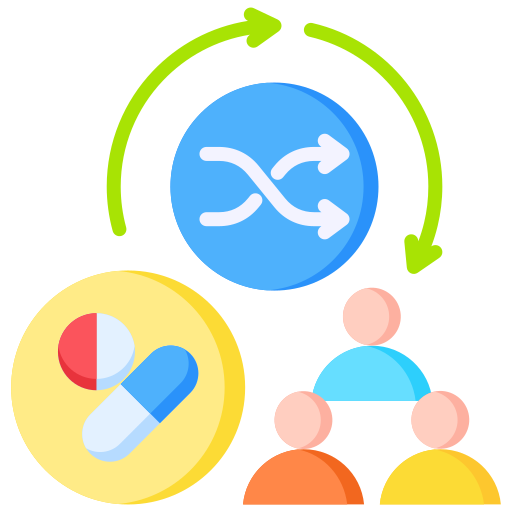Ensuring that the clinical trial population reflects the diversity of the population for whom the new drug is being developed has been a longstanding challenge for the Pharma industry. Historically, many clinical trials predominantly enrolled white, male participants, which overlooked important physiological and biological differences that exist across age, gender, ethnicity, and race4,5.
With the increasing focus from regulatory authorities, achieving a balanced representation of different populations is not only desirable but crucial, which will ultimately lead to more equitable healthcare solutions.
Acknowledging the need for more diverse data in drug development
- Improving Drug Safety and Efficacy
One of the most significant reasons for promoting diversity in clinical trials is to enhance the safety and efficacy of drugs across different populations. A diverse dataset ensures that the approved treatments are not only safer but more effective across various populations. The consequences of inadequate diversity can result in adverse reactions or ineffective dosing, ultimately eroding patient trust in healthcare systems6. - Addressing Health Disparities
Incorporating data diversity is essential for tackling the systemic health disparities that affect marginalized communities globally. By including diverse populations in clinical trials, researchers can identify health trends specific to different groups, leading to more targeted and equitable healthcare solutions, and reduced risk of leaving minority groups vulnerable to poorly understood or mismanaged medical conditions3. - Enhancing the Validity of Clinical Trial Results
Clinical trials that lack diversity may yield less generalizable results, limiting the utility of new treatments in broader clinical practice. Data diversity provides insights into how different populations respond to a given treatment. This approach helps to uncover important factors such as specific genetic markers, environmental factors, or other social determinants that might influence a patient’s response to therapy, ultimately increasing the scientific validity of the trial results7.
Current Challenges in Achieving Data Diversity in Clinical Trials
Despite the well-documented importance of data diversity, many clinical trials continue to struggle with the underrepresentation of minority groups. There are several key challenges that pharmaceutical companies face in achieving diversity in their clinical trials, including inappropriate clinical trial design for the safe participation of certain groups (e.g., excluding children, elderly, and pregnant women), lack of awareness, lack of community engagement, mistrust in the medical system, logistical and financial barriers, and cultural, generational and linguistic barriers 4,5,7.
Addressing these challenges requires targeted efforts from pharmaceutical companies, healthcare professionals, and policymakers alike.
Regulatory Guidance on Data Diversity in Clinical Trials
Recognizing the importance of data diversity, regulatory bodies such as the Food and Drug Administration (FDA) in the USA and European Medicines Agency (EMA) in the EU, have implemented new guidelines to encourage more representative clinical trials. The FDA has a long history of issuing guidelines that improve clinical trial diversity emphasizing the importance of including participants from underrepresented populations (Figure 1)8-13. Similarly, the European Medicines Agency (EMA)14 and other international regulatory bodies are pushing for trials to better reflect the diversity of patient populations.

Pharma Companies’ Strategies to Meet Diversity Goals
To align with these new regulatory standards and address the need for more equitable healthcare, pharmaceutical companies are implementing several strategies to meet diversity goals4,15:
 |
 |
 |
 |
 |
| Community Engagement and Partnerships | Decentralized Trials | Inclusive Eligibility Criteria | Adaptive Trial Design | Real-World Data Informed Trials |
| Partnering with local healthcare providers and advocacy organizations to build trust and educate underrepresented populations about the importance of clinical trials, can improve their participation. | Adopting decentralized clinical trials allows patients to participate remotely, and removes geographical barriers that often prevent minority groups participation. | Ensuring eligibility criteria are representative of the population for whom the drug is being developed, and eliminating or modifying uneccessary exclusion criteria. | Using an adaptive clinical trial design can allow for pre-specified trial design chances during the trial when data becomes available, including altering the trial population. | Using RWD to model the effect of specific eligibility criteria on the eligible population and trial endpoints (e.g., overall survival) can enable a more inclusive trial design. |
Achieving data diversity in clinical trials is not just a regulatory requirement but a moral imperative. By addressing health disparities, enriching clinical trial results, and following new regulatory guidelines, pharmaceutical companies have an unprecedented opportunity to create a more equitable and effective healthcare system.
How SOPHiA GENETICS Supports Data Diversity?
The tech-agnostic, decentralized and powered by AI SOPHiA DDM™ Platform is breaking data silos by standardizing complex multimodal datasets to unlock actionable insights.
Leveraging a global network of 780+ institutions, and a growing data diversity of more than 1.8 million genomic profiles, SOPHiA DDM™ provides on-demand access to a wealth of accurate global genomics insights and real-world data that support you in optimizing your clinical trial and enriching your market access strategy.
Through strategic innovation and a genuine commitment to diversity and inclusion, SOPHiA GENETICS is actively addressing health inequalities in comprehensive cancer care. The ongoing collaboration with AstraZeneca and Memorial Sloan Kettering Cancer Center (MSK) is looking to bring quality and comprehensive cancer testing worldwide, including in underserved regions where access to testing remains scarce. This project is accelerating the deployment of MSK-ACCESS® powered with SOPHiA DDM™ to healthcare institutions, leveraging the global SOPHiA GENETICS network. In a recent press release, we announced a new milestone in this collaboration.
In a continued effort to revolutionize cancer research and embrace diversity, SOPHiA GENETICS has launched SOPHiA UNITY, a global collective intelligence network of best-in-class healthcare institutions fueling the next wave of innovation in oncology by making real-world data available for research.
By uniting a critical mass of real-world data and expertise in data analytics, SOPHiA UNITY is one of the most robust sources of diverse data available in the market to drive breakthroughs and improve patient outcomes worldwide.
With the increased requirements for more data-informed clinical trials and drug development, SOPHiA GENETICS empowers Pharma companies to take their oncology clinical trials to the next level, driving the global movement towards health equity.
To learn more about SOPHiA UNITY, visit our page and read our recent press release for an update on healthcare institutions that have joined the consortium.
References
- Bøttern J, Stage TB, Dunvald AD. Clin Transl Sci. 2023;16(6):937-945. doi: 10.1111/cts.13513
- Kelsey MD, et al. Contemp Clin Trials. 2022;116:106740. doi: 10.1016/j.cct.2022.106740
- Vidal L, et al. ESMO Open. 2024;9(5):103373. doi: 10.1016/j.esmoop.2024.103373
- Royce TJ, Zhao Y, Ryals CA. JAMA Oncol. 2023;9(4):455-456. doi: 10.1001/jamaoncol.2022.7170
- Blumenthal D, James CV. N Engl J Med. 2022;386(25):2355-2356. doi: 10.1056/NEJMp2201433
- Candelario NM, et al. Ann Oncol. 2023;34(12):1194-1197. doi: 10.1016/j.annonc.2023.09.3107
- Gross AS, Harry AC, Clifton CS, Della Pasqua O. Br J Clin Pharmacol. 2022;88(6):2700-2717. doi: 10.1111/bcp.15242
- U.S. Food and Drug Administration (FDA). Collection of Race and Ethnicity Data in Clinical Trials Guidance for Industry and Food and Drug Administration Staff. 2016
- U.S. Food and Drug Administration (FDA). Enhancing the Diversity of Clinical Trial Populations – Eligibility Criteria, Enrollment Practices, and Trial Designs. 2020
- U.S. Food and Drug Administration (FDA). Diversity Plans to Improve Enrollment of Participants from Underrepresented Racial and Ethnic Populations in Clinical Trials Guidance for Industry. 2022
- U.S. Food and Drug Administration (FDA). FDORA. 2022
- U.S. Food and Drug Administration (FDA). Collection of Race and Ethnicity Data in Clinical Trials and Clinical Studies for FDA-Regulated Medical Products. 2024
- U.S. Food and Drug Administration (FDA). Diversity Action Plans to Improve Enrollment of Participants from Underrepresented Populations in Clinical Studies. 2024
- European Medicines Agency (EMA). ICH Guideline E8(R1) on General Considerations for Clinical Studies. 2022
- U.S. Food and Drug Administration (FDA). Guidance Snapshot: Enhancing the Diversity of Clinical Trial Populations – Eligibility Criteria, Enrollment Practices, and Trial Designs. Final Guidance.2020













